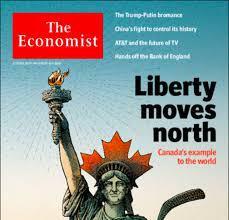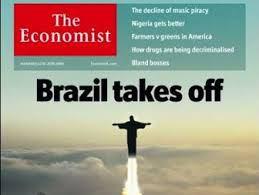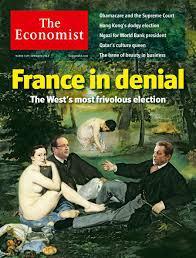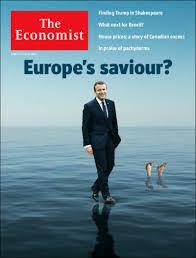 On this blog I’ve frequently cited The Economist. It’s a news magazine (though Britishly calling itself a “newspaper”). I’ve subscribed for about thirty years. The Economist is my friend, almost a lover even, integral to my existence.
On this blog I’ve frequently cited The Economist. It’s a news magazine (though Britishly calling itself a “newspaper”). I’ve subscribed for about thirty years. The Economist is my friend, almost a lover even, integral to my existence.
Maybe because I was a socially awkward youth, wordly clueless, I’ve always had an ache for understanding. To know what’s going on, and why. This The Economist provides. It keeps me informed about every corner of the globe (and in today’s interconnected globalized world, it all matters). And much of it is deeply fascinating, like a great global “Game of Thrones” with hundreds of characters and story lines. Take Venezuela’s for example, a dramatic tale (indeed, a morality tale), unfolding for a quarter century. The Economist provides a ring-side seat. Much of this stuff never makes it into newspapers or other sources.


So far I may have made it sound dry. It is not. The writing is often a pleasure to read and is full of droll wit. I recall one report, quoting Cuba’s Raul Castro saying Honduras should be sanctioned because its president (arguably) wasn’t seated democratically. “Castro said this,” The Economist wrote, “with a straight face.”
So The Economist has no time for cant or hypocrisy. The magazine tells it like it is – often with delicious zingers.

The magazine also covers business, finance, science, and the arts, including excellent book reviews. And the final page always provides a parting treat: an obituary. Yes, its obits too are flavorful reading, often about less famous personages, but always interesting ones. Or at least The Economist seems able to make them so.

Depicting France’s Macron; the feet sticking up are Theresa May’s
I’m pleased to have gotten into its pages a few times myself, with letters-to-the-editor. (The latest responded to an article about violence in Baltimore, pointing to the drug war as a major cause.)
I wish more people read it. Many of the world’s movers and shakers certainly do, but not enough of them. It’s dismaying when folks aspiring to (or exercising) leadership are so ignorant about the world. An Economist reader would never have said, “What’s Aleppo?”
Advertisements